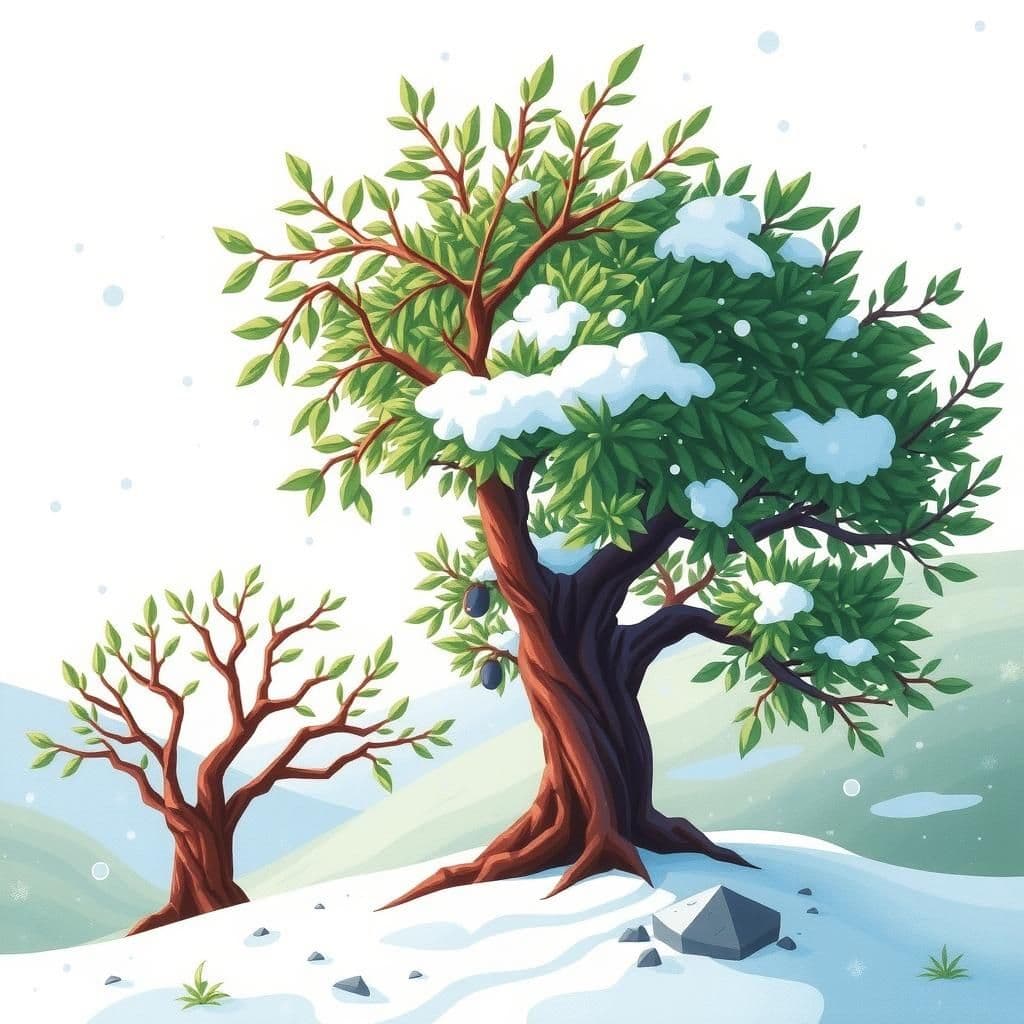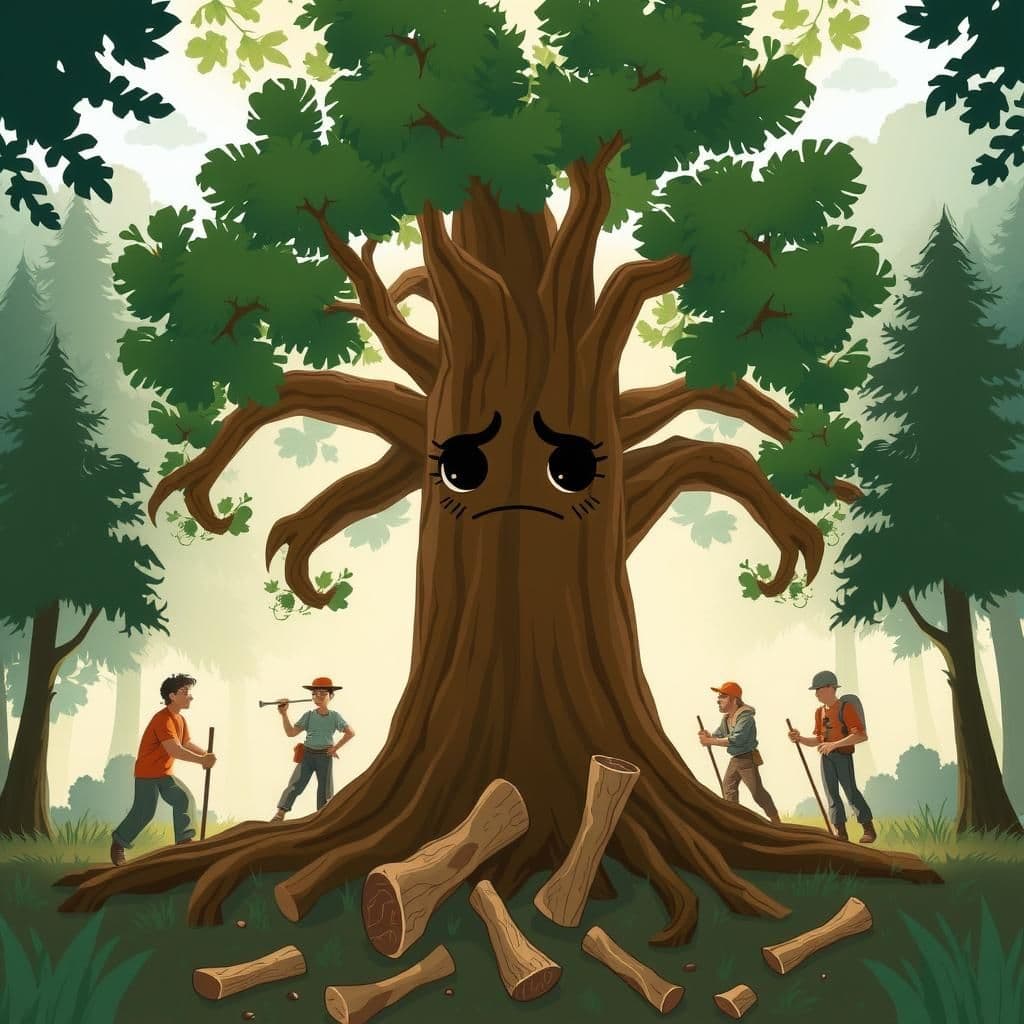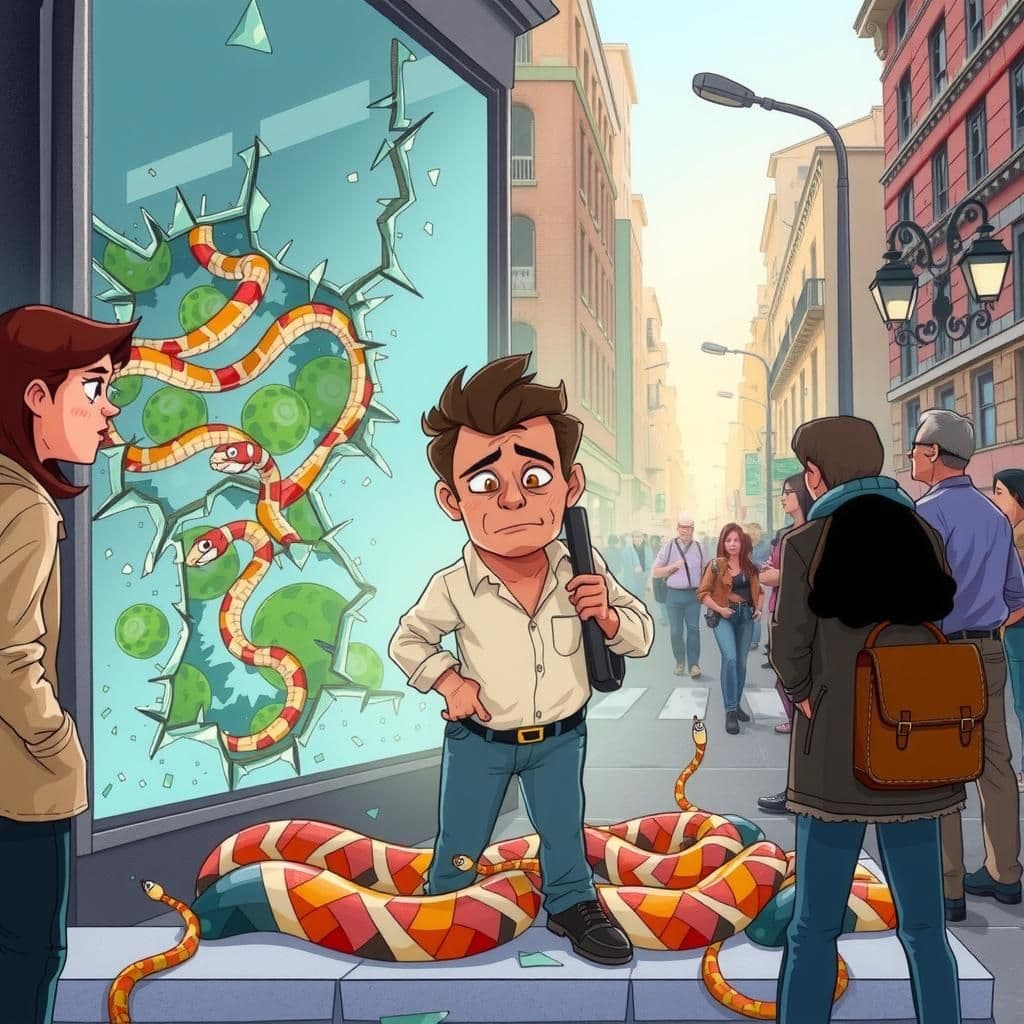The Olive Tree and the Fig Tree
In "The Olive Tree and the Fig Tree," a classic among famous moral stories, the Olive Tree ridicules the Fig Tree for shedding its leaves with the seasons. However, when heavy snow falls, the Olive's lush branches break under the weight, leading to its demise, while the bare Fig Tree remains unharmed. This popular moral story illustrates that what may seem like a disadvantage can sometimes be a blessing, making it a valuable lesson in short moral tales and bedtime moral stories.

Reveal Moral
"The moral of the story is that adaptability and resilience in the face of change can be more advantageous than seeming strength and permanence."
You May Also Like

The Wolf and the Fox
In "The Wolf and the Fox," a large and strong Wolf, believing himself honored by his fellow wolves when they call him "Lion," foolishly abandons his kind to live among lions. An observant old Fox comments on the Wolf's pride, pointing out that despite his size, he will always be merely a wolf in a herd of lions. This entertaining moral story serves as a life-changing reminder of the dangers of self-conceit and the importance of recognizing one's true nature in the realm of popular moral stories for adults.

The Oak and the Woodcutters
In "The Oak and the Woodcutters," a Mountain Oak laments its fate as it is cut down and split apart by woodcutters wielding wedges made from its own branches. This poignant tale serves as one of the impactful moral stories often shared in childhood, illustrating that the misfortunes caused by one's own actions are the hardest to endure, making it a culturally significant moral story for class 7.

The Citizen and the Snakes
In "The Citizen and the Snakes," a disheartened citizen, frustrated by his failure to secure a national political convention for his city, inadvertently shatters a druggist's show-window filled with snakes. As the reptiles spill into the street, he learns a valuable lesson: even when faced with setbacks, taking action—however unexpected—can still lead to meaningful change. This unique moral story serves as a timeless reminder for students in class 7 that when we can't achieve our primary goals, we should still strive to make a difference in other ways.